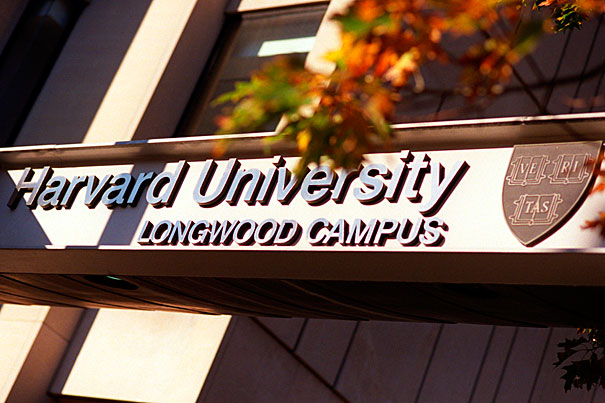
The American Association for the Advancement of Science is the world’s largest general scientific society and publisher of the journal Science. Fellows are nominated by the steering group of their respective sections, by three fellows, or by the association’s CEO.
Justin Ide/Harvard Staff Photographer
AAAS announces 15 Harvard fellows
Faculty honored for contributions to science
The American Association for the Advancement of Science (AAAS) today (Jan. 11) named 15 Harvard faculty members AAAS Fellows.
The tradition of AAAS Fellows began in 1874. Currently, members can be considered for the rank of fellow if nominated by the steering group of their respective sections, by three fellows, or by the association’s CEO. Each steering group then reviews the nominations of individuals within its respective section and forwards a final list to the AAAS Council, which votes on the final aggregate list.
Harvard faculty named AAAS Fellows for 2011 follow:
Frederick W. Alt, Harvard Medical School, for distinguished contributions to the field of genome stability, particularly for elucidating the mechanisms of immunoglobin gene rearrangement and nonhomologous end joining in mammalian cells.
Barry R. Bloom, Harvard School of Public Health, for his many contributions to and leadership in the areas of infectious diseases, vaccines, and global health.
Lewis Cantley, Harvard Medical School, for distinguished contributions to the field of signal transduction and control of cell growth.
Nicholas A. Christakis, Harvard Medical School, for foundational research on the relationship between social networks and health, applying network science and mathematical models to understand health dynamics in longitudinally evolving networks.
R. John Collier, Harvard Medical School, for distinguished contributions to our understanding of how bacteria cause disease, particularly for elucidating the structures and actions of bacterial toxins.
William Friedman (nominated for the fellowship while a professor at the University of Colorado), Arnold Arboretum, for important contributions to the study of angiosperm evolutionary development biology.
Vadim Gladyshev, Harvard Medical School, for distinguished contributions to the fields of redox regulation, signaling, and the biochemistry, bioinformatics, and biology of the trace element selenium.
Michael E. Greenberg, Harvard Medical School, for the study of activity dependent processes whose dysfunction can lead to the development of diseases of cognitive function.
Roberto Kolter, Harvard Medical School, for distinguished contributions to understanding the genetics of and signaling in bacterial stationary phase and biofilm production.
Bjorn R. Olsen, Harvard School of Dental Medicine, for distinguished research contributions to cell, matrix, and developmental biology and to dental academics through innovative leadership at the Harvard School of Dental Medicine.
Stuart H. Orkin, Harvard Medical School, for distinguished contributions to the understanding of the development and function of the blood system, particularly the mechanistic basis of lineage selection and hemoglobin switching.
Hongkun Park, Faculty of Arts and Sciences, for his distinguished contributions to nanoscience, particularly for pioneering work in single-molecule transistors and nanodevices, and the exploration of their utility in electronics, optoplasmonics, and biology.
Charles N. Serhan, Harvard Medical School, for distinguished contributions to medical sciences (pathology), with the identification of novel mechanisms in resolution of inflammation via structural elucidation of endogenous anti-inflammatory-pro-resolving chemical mediators.
Yang Shi, Harvard Medical School, for seminal contributions to the field of epigenetics by identifying the first histone demethylase, thus disproving the long-held view that histone methylation is irreversible.
Cornelis P. Terhorst, Harvard Medical School, for distinguished contributions to the characterization of the CD3/T cell receptor complex, SLAM molecules, and highly innovative studies on X-linked lymphoproliferative and inflammatory bowel diseases.
For more information.




